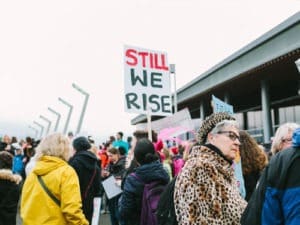After the Second World War, the international community vowed never to allow such atrocities to happen again. For the first time, an international agreement declared “all human beings are born free and equal in dignity and rights” and insisted that fundamental human rights were to be universally protected.
Available in more than 500 languages, the Universal Declaration of Human Rights is the most translated document in the world. Drafted by representatives with different legal and cultural backgrounds from all over the world, the Declaration was proclaimed by the United Nations General Assembly in Paris on December 10, 1948 (General Assembly resolution 217 A) as a common standard of achievements for all peoples and all nations.
The Declaration is a milestone document in the history of human rights. Although this year’s Human Rights Day marks the 70th anniversary of the Declaration, it remains just as powerfully relevant today as it was in 1948. It establishes the equal dignity and worth of every person and confirms that the State has a core duty to promote standards of life that enable us to exercise our dignity and equality.
 However, as groundbreaking as the Declaration was, it failed to prohibit age discrimination. Only 177, or 0.3 percent, of the 57,686 recommendations made in the Universal Periodic Review process at the Human Rights Council have been on older people’s rights, according to HelpAge International.
However, as groundbreaking as the Declaration was, it failed to prohibit age discrimination. Only 177, or 0.3 percent, of the 57,686 recommendations made in the Universal Periodic Review process at the Human Rights Council have been on older people’s rights, according to HelpAge International.
A new international convention on the rights of older people would be the most effective way to make sure that all people enjoy their human rights in older age, and on an equal basis with others. Support for a new convention is growing among member states from every region of the world.
Whenever and wherever humanity’s values are abandoned, we all are at greater risk. Attacks on human rights by people who want to profit from hatred and exploitation erode freedom and equality locally and globally. They can only be resisted by standing up for our rights and the rights of others.
Leave a Reply